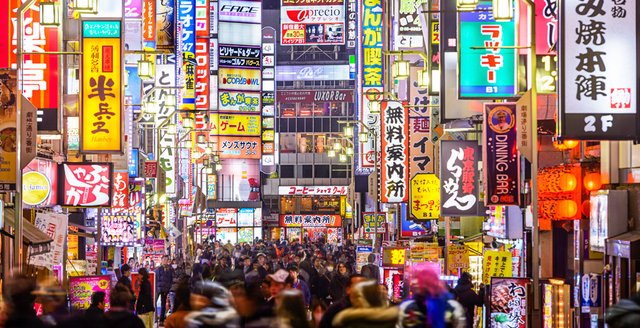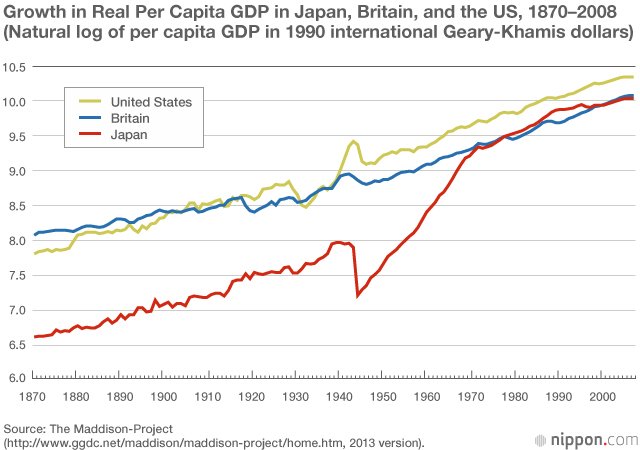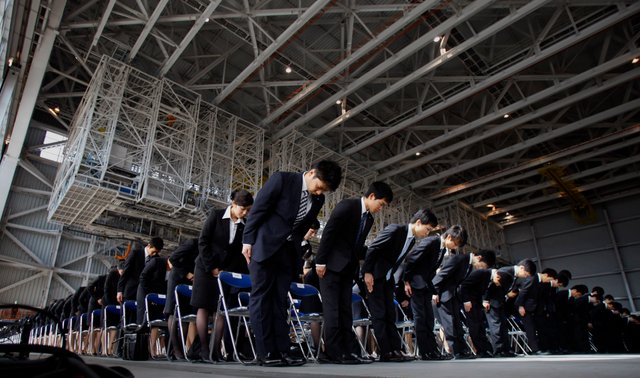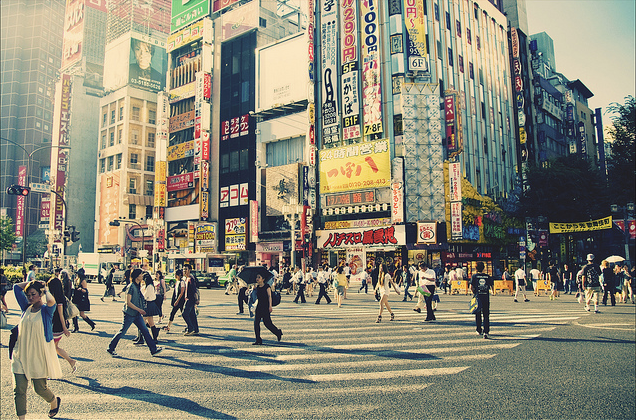Why The Japanese Labor Market Was Able To Support Economic Growth In Such A Short Period Of Time

The Characteristics of the average Japanese worker differ much from other parts of the world, especially from the west, where much of the cultural wisdom and social norms are very different from the Japanese. The average worker is male, due to existing taboos of working females, a salary paid enterprise union worker with lifetime employment who follows a strict hierarchical company structure. The system is heavily based of conventional wisdom which puts a great emphasis on seniority and a company acting together as a family much more than the western world. In this regard, Japanese workers are treated very well compared to employees from other parts of the world. Fringe benefits for both blue collar and white collar workers, which include strong job security, semi-annual benefits and large severance packages after retirement and a profit sharing type model that make working long grueling hours, worth it. The strong family like relationship definitely adds a large benefit to productivity, but sometimes there are negatives for the individual worker.

One of the very unique aspects of Japan is the how seniority can rank over experience in the company, which derives from a cultural respect for elders in both Confucius and Shinto teachings. Seniority wages incentivize workers to stay in the same company for long periods of time and should be considered closely related to lifetime employment. When Japan’s economy was booming, the need for skilled workers was very high so companies had to incentivize workers not to leave. In addition, due to workers staying long periods of time, the companies could train and increase the mobility of workers at the company’s expense. This long term investment of human capital into the Japanese workers, made the overall company extremely productive and profitable. Companies would go even as far as to send executives overseas to study in American business schools to learn the most competitive methods to management. The reason that lifetime employment is able to be offered to Japanese workers, relies heavily on the mobility of the worker to be able to do various jobs if needed. The truly genius part is that Japanese companies work almost similar to self-sustaining economies in the way that they can shift around workers as others retire instead of having to hire new labor for the job. Early human capital investment into workers, an emphasis on job rotation and mobility is what kept many companies from having excessive layoffs in the early 90s when the booming Japanese economic bubble burst.
One large criticism of the Japanese worker is that they are subject to extremely long work hours with often little vacation time and no rest, as a result of strong relationship with their employers and their colleagues. However, due to this obligatory type relationship between workers and their superiors, Japanese workers are forced to work long hours and abide by tight social ideologies that come directly from the company. For example, even after working long hours the Japanese will sometimes be obligated to go out with coworkers and drink into the early morning because they have been asked by their boss. Even taking full weekends off is a relatively uncommon occurrence, with most workers coming in on Saturdays until at least noon. However, after the financial crisis in the US and companies trying to stay profitable, US workers have taken the reigns as one the most overworked people in the world.

A large amount of Japanese firms have enterprise unions in both blue collar and white collar job industries. Much like American unions, representatives have large amounts of power and influence to better the benefits for union workers in their industry. In addition, unions in both the US and Japan can negotiate different contracts with different firms depending on their demands. One thing to note as well, is there are far fewer unions in Japan than the US due to the unions that do exist covering a large industry rather than a specific skilled labor type. Although recently harmonious, employers and unions did not always have successful discussions, which lead to worker strikes and lockouts in the 40s and 50s. Unionized workers in Japan have started to slowly disappear as the economy has struggled to keep companies profitable and a higher level of management opposition to hiring union workers. Renegotiation of contracts and labor is often done during the spring, a time aptly called “The Spring Offensive”, where union leaders and upper management will meet and discuss new demands. The usual demands focus on the amount to raise wages for the upcoming year. Because there is a defined time to do this and it is expected, wages are much more flexible in Japan than in most of the world.

Probably the biggest difference between the US and Japanese economy is the role that companies take in creating a sharing economy between workers and employers. The sharing economy in Japan aims to have everyone benefit from the success of companies, through bonuses keeping unemployment low. The Japanese sharing economy wants to give work to those who are willing to follow the cultural rules and put in the time to the companies, but will often push out those who don’t. There is a common phrase in Japan which is “the nail that sticks out will be hammered back in”, meaning that those who go against the grain and focus on themselves rather than the collective, can often have trouble finding employment in the sharing economy. The real danger about the sharing economy however, is that when profits are low or non-existent, this can be shared as well. Bonuses will go down, work hours will increase and moral can lower in the long run.
The sharing economy is believed by some to be a remnant of the feudal lord system that took place in Japan for hundreds of years, where a daimyo or feudal lord, would take care of the samurai under his control if successful. The modern version of this is companies taking care of their employees through the sharing economy. Another idea is that the bonuses are wages that are disguised so they can be adjusted in times of economic hardship to keep the companies profitable if needed. Flexibility in labor costs are much easier to have with bonuses that can be adjusted on a moment’s notice.
Thanks for sharing some more about this interesting country.
I love observing and interacting with culture. There is so much to learn about LIFE from traveling and studying or even better immersing ones self in culture around the world!
Different culture I would not like. I worked for Japanese company only once and I did not like it.
Upvoted.
Wonderful article! You have more insight on this than most similar articles I've read from professional reporters.
This post has been linked to from another place on Steem.
Learn more about and upvote to support linkback bot v0.5. Flag this comment if you don't want the bot to continue posting linkbacks for your posts.
Built by @ontofractal